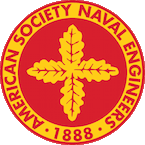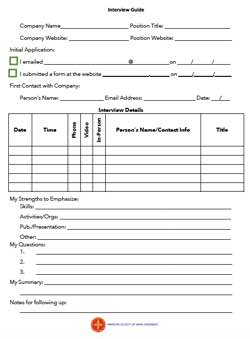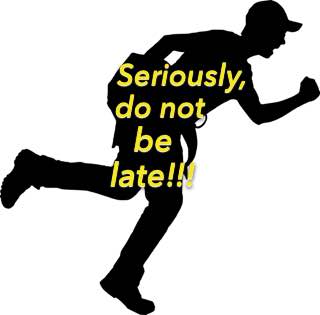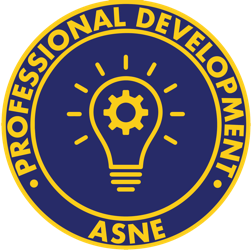PDF of these Materials
 Welcome to this guide on putting your best foot forward throughout the interview process! Before we get into the weeds, remember one thing: everyone has gone through this process. Your interviewers know the feeling of being slightly nervous and thinking quickly to answer unanticipated questions. You do not have to be perfect, but you need to be professional and prepared.
Welcome to this guide on putting your best foot forward throughout the interview process! Before we get into the weeds, remember one thing: everyone has gone through this process. Your interviewers know the feeling of being slightly nervous and thinking quickly to answer unanticipated questions. You do not have to be perfect, but you need to be professional and prepared.
So you’ve landed a coveted response from a recruiter? Now is your time to shine! You spent extensive time on your resume and cover letter; keep up that level of professionalism in your email correspondence. Most likely the recruiter or HR representative will email you to attempt to set up a phone, Skype, or Zoom call.
Preparation is key. You want to highlight your strengths and your fit for this company and this position. Just like with your resume, you will want to do your research, customize your information for this position, and work hard to put forward a good image of how you fit the position and will strengthen the organization. This guide is a template you can use to organize your interview process and previews the information in this module.
Stay focused on your strengths! Take a moment to write down the 2-3 things that you most want to discuss in a potential interview. Those are the things that you need to highlight in the beginning and end of your interview. As you consider the questions you may want to ask and the summary that you want to end with, keep your key selling points in mind. Make a strong case!

This quick overview of the interview process by Marist University shares the big picture before we delve into details.
The remainder of this page dives deeply into 4 topics:
- Preparing for the Interview Process
- The Question Section
- Questioning the Interviewer
- Email Correspondence
Preparing for the Interview Process
Like most things in your academic career, success directly relates to how well you prepare. The fact that you are here is a big first step. You can see the Interview Guide and quickly see types of questions to expect. Truly prepared candidates will complete the Interview Guide with details they want to share, have print outs of all documents so technology issues are not catastrophic, and engage in mock interviews. Please invest your time in this process; it will pay off!
The beginning of this process will occur via email (see Section 4 for pointers); be sure you use a professional-sounding email address. Your school account will work, and feel free to start a new Gmail account dedicated to job searching.
In addition to actively applying for jobs, realize that Human Resources (HR) representatives will be searching for you using Google, Facebook, and LinkedIn. On these platforms, be prepared to put your best foot forward (or hide your presence from the public). A couple things to keep in mind as you respond:
- You don’t need to be overly formal, but keep your writing professional. Use good sentence structures and never include emojis, acronyms (FWIW), and informal banter.
- Let the recruiter know about times you are unavailable; people understand that you have a life too.
- Try to schedule the call for the time of day you are at your best. Whenever you can, give yourself the best opportunity to share your best self!
- Edit! Take a good second read of everything you send. It’s most important to be professional rather than rush.
When you are contacted to set up an interview, be sure to carefully consider the times and dates you are available. It's ok to state that you have previous commitments on certain days and times. Also consider whether there are times of the day where you are more energetic and try to target those times. If you are doing phone interviews, also consider when you will be free from distractions and background noises. Be strategic when suggesting times to connect!
You can ask who will be interviewing you. This information will help you be more prepared and will ensure you understand the number of people participating in each interview. Be sure to use this initial information to research the company and the people that you expect to speak with. When you research the company, be sure to note this information:
- Company mission statement
- Company locations and divisions
- Key leadership that will manage you
- Company's recent news and achievements
If you know some of the people on the call, you can search Google and LinkedIn for background information like:
- Position
- Length at the company
- Publication and presentations
- Public information that reflects their goals, missions, interests
Use this information as background, but you do not need to directly mention what you found. For example, if you find the HR representative's LinkedIn profile includes a summary stating “Seeking passionate professionals...”, then you should write notes beforehand about anecdotes and evidence that show your passion and your professionalism. You can also tip your hand that you did research by noting recent successes publicized by the company (“I am interested in delivering products like the recent hull simulation software this company recently delivered to the Navy.”).
If the company applies cutting-edge research, search for academic papers and presentations from the leading researchers/developers in this division. If you know they use certain software packages or statistical applications, be sure you are prepared to speak to your understanding of those tools and how you will ensure you are ready to apply them quickly if hired.
The more that you can prepare before the interview, the less your brain will have to work during the interview. This background information will help you focus on answering the question with the strongest words rather than trying to recall facts and think of a good example.
Phone Interviews
 Interviews over the phone still require a professional presentation. Many colleges advise students to dress up so you feel professional as you talk. We leave it up to you whether this is important. What is most critical? Ensuring that you ensure you are in a place with a clear connection and no distractions. In addition, you will want to have completed your preparatory research before this first call. Even though you are not in their building, this is a critical first step where people will be removed from the list considered for this position.
Interviews over the phone still require a professional presentation. Many colleges advise students to dress up so you feel professional as you talk. We leave it up to you whether this is important. What is most critical? Ensuring that you ensure you are in a place with a clear connection and no distractions. In addition, you will want to have completed your preparatory research before this first call. Even though you are not in their building, this is a critical first step where people will be removed from the list considered for this position.
Video Conferencing
These tools are becoming extremely popular for interviews of all type. The rules for phone interviews still apply, and it's important to consider the visual image you present. You will want to wear a good top/blazer to ensure you are projecting a professional image. Look at the space you plan to use for the video conference; is it professional? Show only what you want to share with the interviewer(s)? Be sure you and your background show that you are a strong candidate for this position.
In-Person Interviews

Be sure to dress for the position; your appearance speaks volumes! Some engineering interviews may take place near drydocks and other construction facilities. If you may need to tour these facilities, please bring the appropriate shoes that will allow for this tour.
In addition, make sure that you are very comfortable with how to travel to the interview location. You will want to show up 10-15 minutes before you are scheduled to arrive so that you have time to mentally prepare and check in with any security guards, etc.
Bring a professional binder or bag that contains many copies of your resume, notetaking materials, and print outs of any correspondence with the company. Your completed Interview Guides also will show how you are actively preparing and may differentiate you from other candidates. You can leave the resumes behind with the interviewer(s) at their discretion, but do not worry if they do not want it (most people work with digital copies these days).
The Question Section
Penn State's College of Engineering has great resources for engineering graduates, including a page on Interview Questions. Here are our top 5 questions that you should be prepared to answer.
-
“Can you tell me a little about yourself?”: “The employer is looking for general information about your academic history and interests that ultimately led you to choose your major and career path.”
-
“What do you know about our company and why do you want to work for us?”: “Make sure you have done your homework! Emphasize the strengths and experience that you would bring to the company rather than talk about what the company would do for you.”
-
“Why should I hire you?”: “Present at least three examples of your strongest personal qualities or skills that would be relevant to the position”
-
“Can you talk about your weaknesses?”: “If possible, focus on one work-related weakness and talk about how you are working to improve.”
-
“What do you like to do in your spare time?”: “Emphasize any volunteer work you like to do (if applicable) or your involvement with student organizations related to your major or field of study.”
-
“Can you describe a challenging situation that you have faced during your college years, and how you resolved it?”: “Choose a fairly benign situation, such as a conflict with a roommate, and focus on how you worked collaboratively to find a solution.”
Peter Vogt wrote "Engineering Interview Questions" for Military.com to highlight these five question types common across engineering interviews.
-
Testing your content knowledge
If you have nontraditional preparation, expect a couple basic questions that will ascertain your understanding of key theories and formulas you will be expected to apply in your new position. Do not overly stress, but be prepared!
-
What Software Do You Really Know?
Software is driving many engineering companies and their entry-level positions are targeted for people ready to jump in and interface with software. Ideally, you will have a strong answer for your experience with common modeling software and an anecdote that describes how you quickly learned a software package to accomplish a goal.
-
Are You Keeping Pace Technically and Technologically?
In addition to the aforementioned anecdote, it will be important to have a club, hobby or experience that proves you are invested on staying abreast of technical and technological growth. Being able to speak about recent research articles and research periodicals that you read is also a great way to show that you are eager to keep up with developments.
-
Can You Solve Problems with Your Hands as Well as Your Head?
Engineers plan, test and do. Engineering companies thrive on contracts that yield high-quality deliverables. You have to be part of that culture and those solutions. Seeing a project through, particularly in the face of adversity, will show these companies that you are the candidate they must hire to help get the next product out on time. Your resume should already highlight these real-world projects, and you should be ready to talk through the entire engineering design process (scoping, researching, prototyping, evaluating, building, testing). It's great if you do this work as part of a team; highlight your unique contribution and how you approached collaborations.
-
Do You Truly Understand Clients/Customers and Teamwork?
Companies are not hiring entry-level staff to save the day. They are looking for candidates that listen well to internal and external clients (people you work with and work for). You should have a story about where you heard the requirements of the project in a way that helped you, your friends, or your team achieve greater success.
The Interviewer's Goals
MIT"s Sloan School of Management describes Strategic Interviews as "interviews for professional positions are “competency-based interviews.” That is, the questions are designed to elicit behavioral information (what you have done in the past in a particular situation) and situational information (what you would do in a hypothetical future situation)." Most people interviewing you will be seeking answers to these questions. They ascertain the reservoir of experiences and skills that you have, and they ask you to think on your feet to demonstrate problem-solving skills. Be confident in your preparation and these questions will go smoothly. Here is MIT's interview preparation advice:
"The four main competencies managers need have been categorized this way:
- Planning (sequencing and making things happen)
- Problem solving (using your analytical skills)
- Interpersonal skills (emotional stability affecting ability to get things done through others)
- Attitudes, interests, and motivation (what drives you)
"A good rule of thumb is to be prepared to discuss at least two positive examples of each of these core competencies in an interview." - MIT"s Sloan School of Management
Questioning the Interviewer
You may be surprised to hear “Do you have any questions for me?” is an extremely common question. But, you will be prepared! Have two authentic questions written down before the interview. If you have a series of interviews, you may want to have separate questions for HR representatives, colleagues at your level, and supervisors. Here are some possible questions (and what they imply about you):
- How are promotions and raises allocated? (I am looking to advance in this company.)
- What tools and strategies do teams use to complete projects? (I'm familiar with teamwork and want to help the group succeed.)
- Are there benefits or opportunities that support professional development? (I'm looking to continue to grow.)
- How is new business acquired? And, would someone in my position be able to help? (I want to help improve the bottom line.)
- How often are new software packages integrated into the workflow? (I am eager to learn/use new software.)
- Have other people recently joined the company at this level? What helped them integrate into the company? (I am seeking to join the team and collaborate.)

At this point you are ready to print and complete the Interview Guide. Use the Interview Guide to help you track what you are saying. Compare it to your pre-made list of things that you want to cover. This section uses our Resume Support descriptions to help you complete the Interview Guide as you participate in each interview.
-
Skills
Did you describe all your key skills? Engineering companies want to see that you are competent in computer languages and programs, so that you can learn their processes and systems quickly. Be sure to list the languages and software programs that you have mastered. In addition, you may want to include laboratory equipment and research techniques that you have mastered. Make sure that each skill you list can be demonstrated (avoid the generic "enthusiastic worker").
-
Activities & Organizations
Did you mention critical activities related to this company/position? Show your commitment to engineering and the larger community by listing the professional associations, student organizations, and community involvement you support. Be sure to highlight any offices you are holding and any initiatives you helped lead. After these engineering activities, you may choose to list music, sports, arts, etc. interests if they show a true dedication that will help employers see you as a dedicated and passionate individual. Please note that you should be careful about listing organizations that may be perceived as extreme by potential employees.
-
References
If you listed references, did you describe your relationship to your reference? We suggest excluding this section entirely unless you have a reference that would capture the attention of an engineering HR executive. Some sites suggest simply listing "available upon request", but we find this as a waste of space that you can use better in the sections above.
-
Publications & Presentations
If you have publications, did you highlight the processes you followed to plan, execute, and document your research? An important section for graduate students, but not expected for undergraduates. If you have published your thesis, definitely include it using a formal citation. If you have published a paper or presented a poster, this is the place to show off your academic accomplishments. (And, if you are using this guide as a checklist for what to accomplish, please seek out these publishing and presenting opportunities. They show initiative!)
-
Summary
Be prepared to quickly summarize why you are a strong candidate. describing your skills and experience in relation to your career interest. Qualification summaries are less widely used than objectives, but offer the opportunity to highlight your most important assets at the top of your resume. If your career interest is in working as a legislative aide, for example, you could summarize your most important accomplishments and skills in this way.
Your Summary
Don't derail a smooth conclusion to a call, but try to summarize your qualifications and experience for a position in two sentences. You will want to write this down and practice saying this so you can end interviews on the highest note possible. Here is an example:
I know I can be a successful engineer for your company because my degree from Engineering University gave me strong content knowledge in naval engineering. And, I greatly enjoyed leading our Promoting Electric Propulsion team, and look forward to using these leadership and electrical engineering skills to support your naval engineering team.
Email Correspondence
We cannot overstate this: the emails you send are the first interviews. They have to be clear, concise and error-free. You should treat them like a paper for a class: write them, edit them, and be confident before you send it. If necessary, copy the email text into Microsoft Word and apply Grammar Check to it.
Send thank you emails! The day after your interview(s) thank each person you spoke with via email. The email can be 2-3 lines, but should directly thank the person and highlight one thing that you learned/appreciated about the experience (personalization is still key!). If you participate in a series of interviews, there will usually be someone that manages that process for you. At the end of the interview circuit ask this person to confirm the email addresses for each person that interviewed you. Be sure to do this before you leave/sign off; it shows you can still be professional while answering a variety of questions.
Additional Resources
Please consider these excellent resources as you prepare to interview for engineering positions:
Critical Next Step: Practice
Find someone that is willing to do a mock interview, or three, with you. (You can offer to do mock interviews for them as well!) These interviews should be at least 20 minutes so you understand how the conversation can ebb and flow. Be sure to note questions that were especially challenging and find ways to better answer them next time. Nothing helps more than practice!
